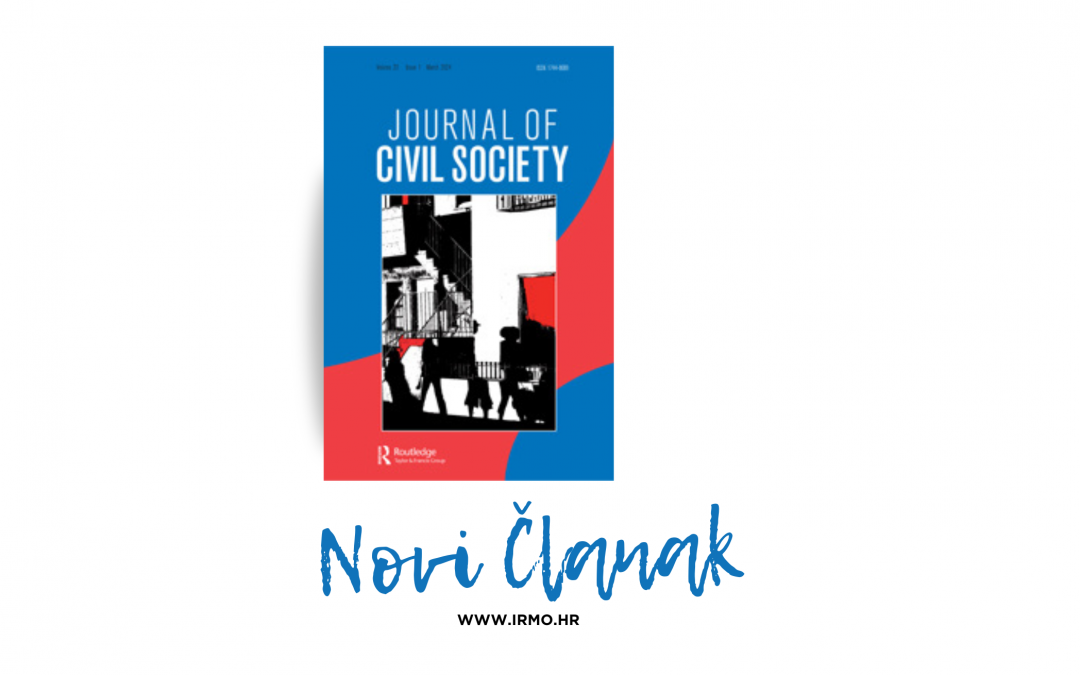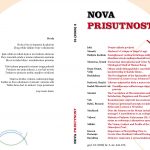Dr Jaka Primorac from the Department for Culture and Communication, IRMO, in collaboration with researchers Dr Karin Doolan, Associate Professor Dr Valerija Barada, from the Department of Sociology at the University of Zadar, and Dr Jelena Puđak from the Ivo Pilar Institute, have published an article in the Journal of Civil Society (WOS, Scopus) titled “The ‘dark side’ of organizational resilience: The civil society sector in Croatia.”
The article explores the challenges experienced by civil society organizations (CSOs) in Croatia, as magnified during the COVID-19 pandemic, and the strategies they use to mitigate their effects. ‘Organisational resilience’ is discussed based on interviews with CSO representatives from four fields: contemporary arts and culture, environmental protection, women’s rights, and educational/youth organizations. Three themes are developed: the ‘normality’ of crisis, established practices of resilience, and emergent practices of resilience. Although the pandemic was experienced as a major disruption, there is a lingering sense of persistent crisis in the civil society sector which is constituted by many tribulations: wars and economic crises, piercing insecurity due to lack of stable funding and an antagonistic political climate. Established practices of resilience that help organizations stay afloat encapsulate financial ingenuity, caring about one’s work, and good relations within and outside of the organization. Emergent practices include strengthening technology infrastructure and use, establishing a trade union for CSO workers, but also charging for services. The advocacy role of CSOs seems dimmed and their ability to help others comes at the expense of their founding values and personal wellbeing. This suggests a ‘dark’ side to organizational resilience, a concept frequently used to signal a positive ability.
The article is available at the following link.






